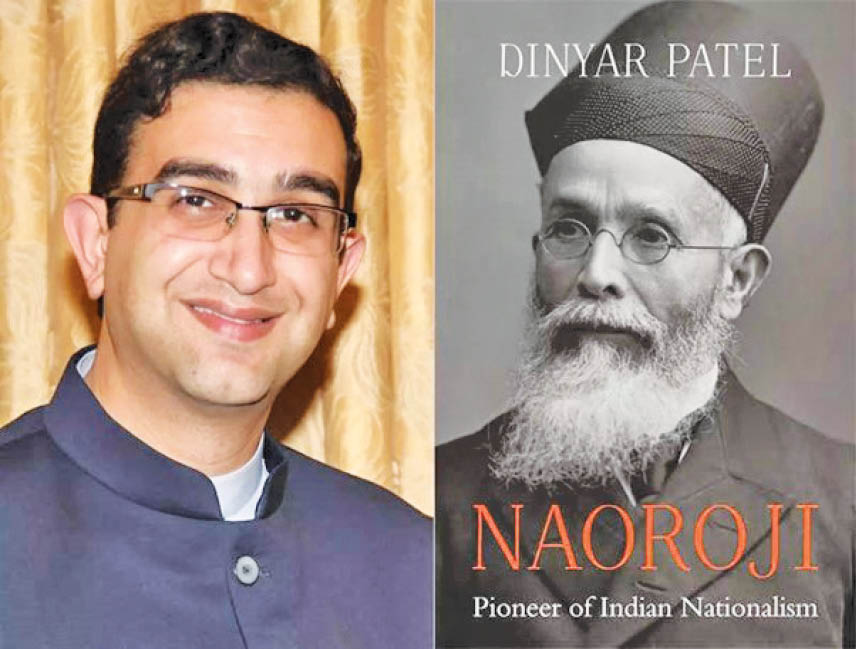Mumbai-based author Dinyar Patel was awarded the prestigious ‘Kamaladevi Chattopadhyay NIF Book Prize 2021’ in December 2021, for his book, ‘Naoroji: Pioneer of Indian Nationalism’. Published by Harvard University Press, this book is an excellent biography of Dadabhai Naoroji, the nineteenth-century activist, who founded the Indian National Congress, and made history as the first British MP of Indian origin, who inspired visionaries like Mahatma Gandhi and Jawaharlal Nehru.
Dinyar Patel, who is also the Assistant Professor of History at Mumbai’s SP Jain Institute of Management and Research, had earlier authored another book on Naoroji in 2016, titled, ‘Dadabhai Naoroji: Selected Private Papers’. Patel’s fascination lies in Naoroji’s extensive political career and diverse activities, especially the popular ‘Personal Papers’ – which very few historians have explored in detail.
Through his books, he aims at undoing misperceptions about early Indian nationalism and how it was crucial in the development of modern India. During this era, numerous basics of Indian democracy and political culture were forged, and the people who forged it, including Naoroji, have not been sufficiently celebrated in historical records. For Patel, going through the activist’s miscellanea in his personal papers was very exciting as Naoroji preserved nearly all of his incoming correspondence, weeding absolutely nothing. As a result, Patel was able to get uninterrupted and detailed insights into how Indians lived and worked in Victorian Britain, navigating between two very different worlds and straddling so different political and social spheres.
Expressing the need for Naoroji’s political ideologies today, in an interview with the Times of India, Patel said, “I think that one important reason is that Naoroji, a Parsi, demonstrates how minorities have contributed so much to the modern fabric of India. Today, we seem to be in a race to the bottom in terms of the vilification of particular minorities. It is therefore quite remarkable to think that 130 years ago, so many Indians acknowledged that a Parsi Zoroastrian from Bombay was their tallest political leader and loudly protested the idea that his religious affiliation could disqualify him from this status… Another thing to keep in mind is the question of poverty. Naoroji understood that poverty was the biggest hurdle India faced; all his politics flowed from a commitment to banish the wrenching impoverishment that stalked the country. I wish today’s political leaders – regardless of party affiliation – shared this fervor and had the pluck to make real big-ticket reforms for economic development.”
Patel’s next book focuses on early Indian nationalism and delves into how nationalists envisioned a future India; their thoughts on democracy, economic development and questions of governance, etc. He’s also exploring how contemporary Indian leaders engaged globally and how they embraced various inputs and strategies.
- માહ બખ્તર – ચંદ્ર પર પ્રભુત્વ ધરાવતું દિવ્યત્વ - 1 March2025
- હાંસોટમાં 100 વર્ષ જૂનાપારસી પેલેસમાં લૂંટ - 1 March2025
- હૈદરાબાદની ચિનોય અગિયારીએ સાપ્તાહિક હમબંદગીના 19માં વર્ષની ઉજવણી કરી - 1 March2025
